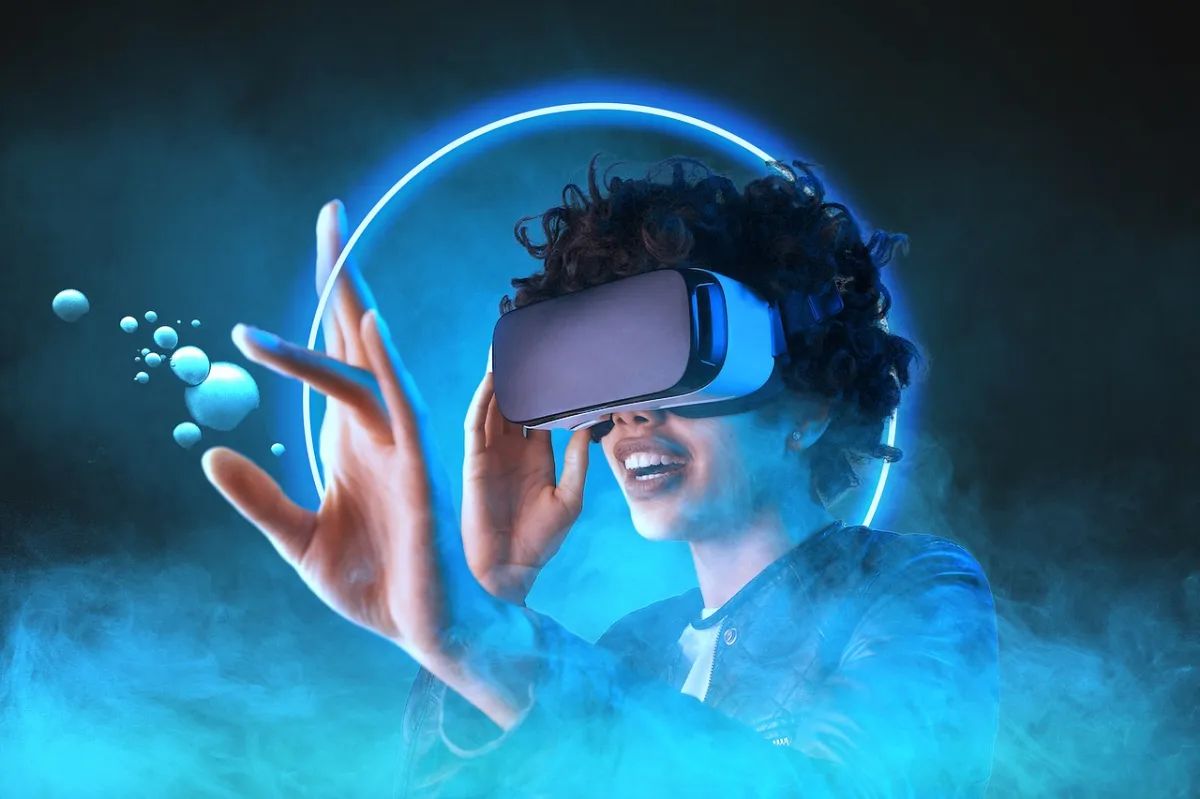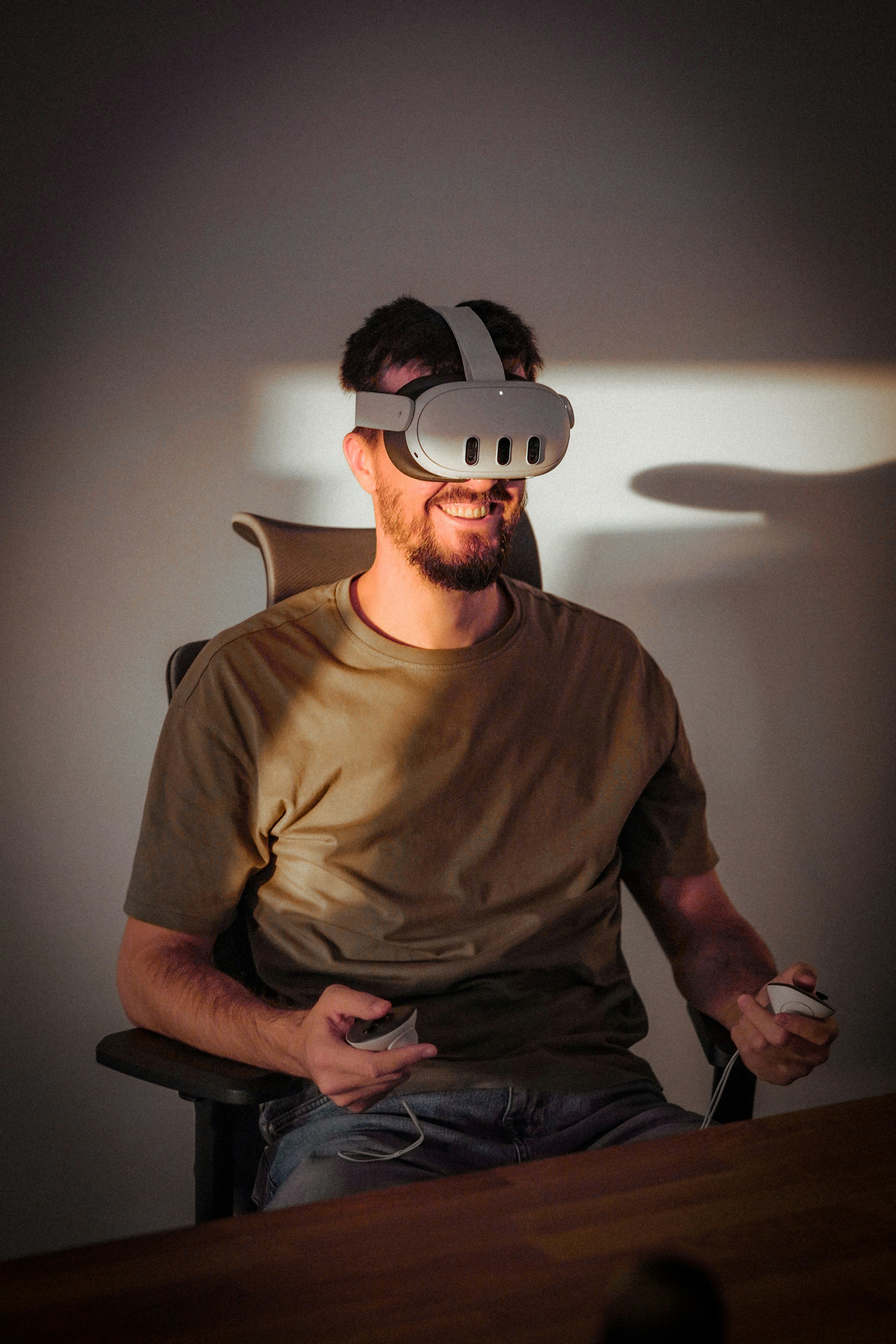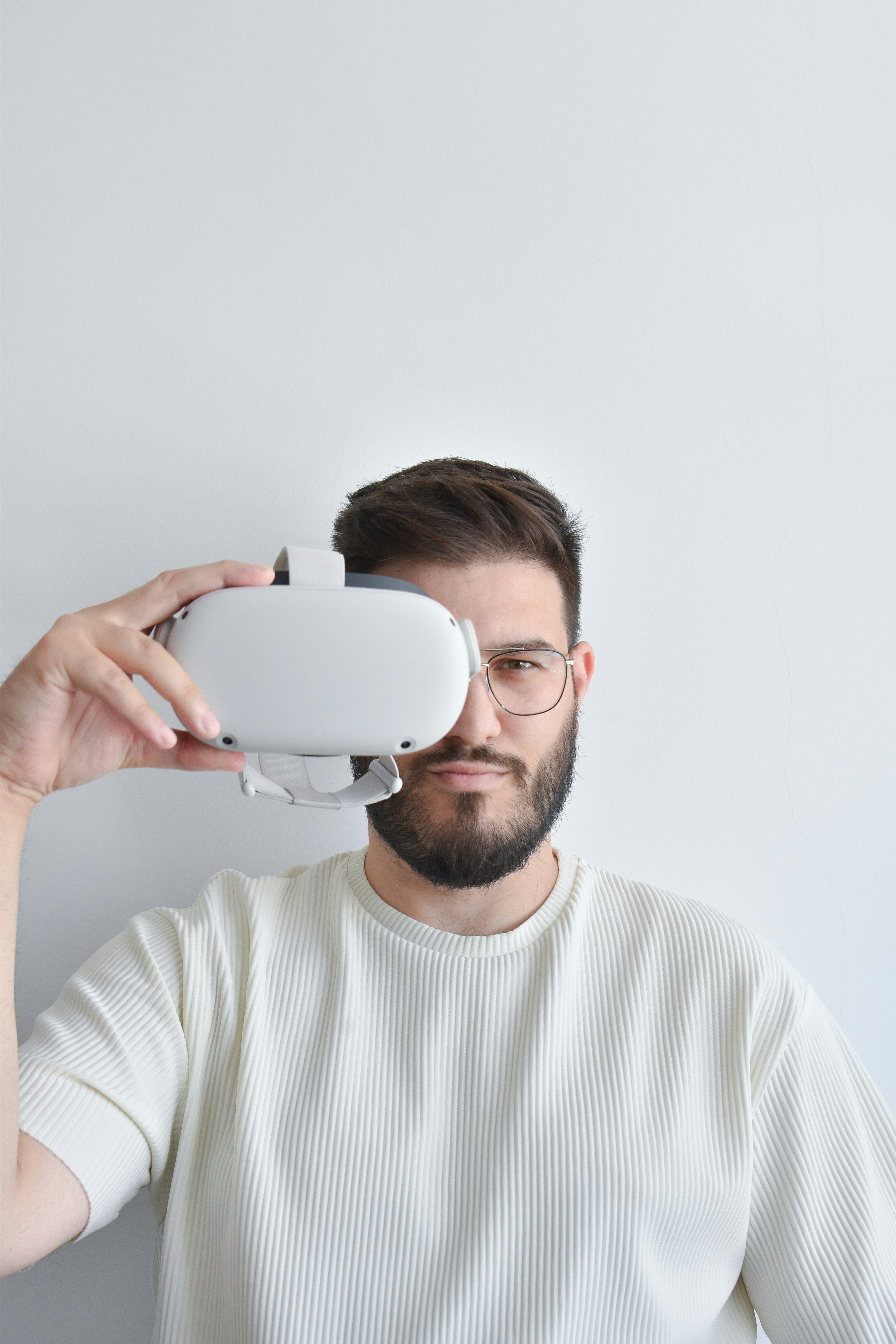Metaverse Exploration Series

The metaverse, a term popularised by science fiction but brought closer to reality by recent technological advances, represents a blend of multiple elements of technology, including virtual reality (VR), augmented reality (AR) and video where users "live" within a digital universe. Advocates of the metaverse envision it as a successor to the mobile internet — a space where physical and digital realities merge in a shared online space that is persistently accessible.
Implications for Various Industries
Retail and E-commerce: The metaverse is set to revolutionise the retail industry by offering immersive shopping experiences. Consumers could try on clothes virtually or visualise how furniture might look in their home before making a purchase. This not only enhances customer satisfaction but also reduces return rates.
Real Estate: Virtual real estate has started to boom, with transactions occurring in digital worlds. The implications for real estate professionals are vast, from virtual tours of physical properties to selling purely digital spaces that people can use for social gatherings or business meetings.
Education and Training: The educational sector can benefit immensely from the metaverse by offering simulations and environments where students can interact with complex data and scenarios in ways that books or traditional computers cannot offer. This could transform distant learning and make education more engaging and accessible.
Healthcare: Virtual reality can aid in therapy and medical training, where medical professionals can practice surgeries or treatment scenarios in a risk-free, controlled environment. Moreover, patient consultations could also move into this virtual space, making healthcare more accessible.
Entertainment and Media: The metaverse could redefine the entertainment industry, with concerts, movies, and sports potentially being enjoyed as immersive experiences that feel more live and interactive.
Workplace and Remote Collaboration: As the world moves towards more remote work, the metaverse can offer spaces that simulate an office environment, allowing for better collaboration and communication among dispersed teams.
Challenges and Considerations
Despite the exciting possibilities, the metaverse presents several challenges. Privacy and data security are significant concerns, as increased digital interaction can lead to heightened risks of data breaches. Additionally, the digital divide could widen if access to this new technology is not equitable, potentially leaving behind those in lower-income communities or developing countries.
Integration with Academic Programmes
Recognising the potential of digital spaces, many academic institutions are incorporating metaverse concepts into their curricula. For instance, the MBA programme with a focus on Digital Marketing by VUC, and the Diploma and Degree Digital and Interactive Media programmes by UNIMY can provide vital insights into how the metaverse is reshaping marketing strategies. These programmes often include case studies, practical projects, and simulations that are directly tied to digital marketing strategies within virtual environments.
These educational programmes are designed to equip students with a robust understanding of digital consumer behaviour, virtual product placement, brand engagement in digital realms, and the analytics needed to track success in these ventures. Moreover, they provide a critical overview of the ethical considerations of marketing in such deeply immersive digital environments.
How Individuals Can Prepare for the Metaverse
Acquire Relevant Skills: Aspiring professionals should focus on acquiring digital skills such as coding, 3D modelling, virtual reality development and digital marketing. Understanding data security and privacy will also be crucial.
Stay Informed: Keeping up with the latest developments in tech and digital marketing through reputable sources, conferences and workshops can help individuals stay ahead of the curve.
Network in Digital Spaces: Engaging in digital spaces, not just social media but also emerging platforms within the metaverse, can help build networks and understand the nuances of digital interaction and commerce.
Explore Educational Opportunities: Programmes like those offered by UNIMY and VUC provide foundational knowledge and skills specifically tailored to thrive in digital marketing landscapes including the metaverse. They are crucial for anyone looking to seriously engage with this new frontier.
The metaverse stands not just as a technological innovation but as a paradigm shift in how we perceive and interact with digital environments. It is redefining traditional industry boundaries, creating new opportunities, and presenting challenges that demand a thoughtful approach. Industries from retail to real estate, education to healthcare, are poised for transformation as digital and physical realities merge. The need for immersive, interactive and responsive environments across these sectors underscores the vast potential of the metaverse.
For individuals, the shift towards a metaverse-dominated landscape necessitates a proactive approach to education and skill acquisition. The digital frontier will require a new kind of literacy that includes proficiency in VR, AR, 3D modelling and an understanding of complex digital ecosystems. Moreover, ethical considerations such as privacy, data security, and digital equity will become increasingly significant, influencing how individuals and companies navigate this new world.
As we continue to explore and expand within this digital frontier, the intersection of technology, business and everyday life will become more integrated than ever. The metaverse offers a canvas for creativity and innovation, and how we prepare for it now will shape the future of digital interaction. The journey into the metaverse is not just about adapting to new technologies but about reimagining the possibilities of what can be achieved in an interconnected digital world.



